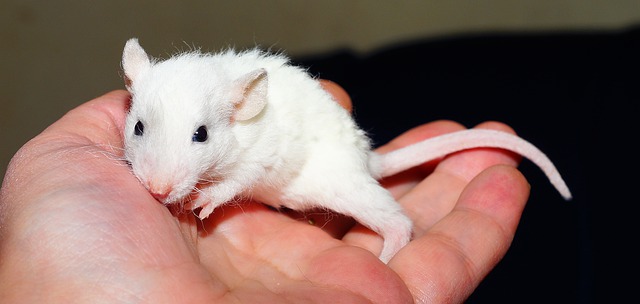Séralini affair - Why Study Data linking GMO Maze to Cancer is Inconclusive? (Yes, this post is sponsored by Monsanto ;))
I assume that many of you enjoy nice and fresh tomato salad. Have you ever wondered what organic molecules are you ingesting while chewing fresh, juicy tomato?

Lots of carbohydrates of course, just a little bit of proteins, a miserable amount of fat (only 0.2 g of fat per 100 g of tomato - perfect diet foods!), vitamins, etc.
Wait a sec, something is missing here...
Tomato is a plant, right? And plants are living organisms, and all living organisms consist of living cells as basic structural and functional units... And all living cells contain - genetic material, of course, or DNA!
Has it ever occurred to you that each time you eat something - tomatoes, apples, meat, bread, etc. - you ingest a significant amount of DNA originating from all cells your food (previously a living organism) contains?
Now, after realizing this terrifying fact, lets go one step further in this horror story and think about next logical question that is imposing itself - OMG, if I ingest all that DNA, what happens next in my organism with all that foreign genetic material??? What if alters my DNA and I become a mutant, or worse, I get cancer???

I will have to disappoint you, this is not a Sci-Fi post :) For quality fiction stories, I suggest that you check @suesa's posts in fiction tag, they're awesome!
What happens to the ingested foreign genetic material is that it gets digested in your stomach, same as all other organic molecules you ate (carbs, proteins,...). Boring, isn't it?
Just imagine a headline in the newspapers:
Unbelievable! Foreign DNA gets digested in your stomach and causes no harm!
Right, that would sell in millions of copies...
GMO maze causes cancer in rats?
The reason I started writing this post is an omnipresence of anti-GMO propaganda in all media and of course, on the internet, but what has especially drawn my attention was the hype that GMO food is linked to cancer caused by (in)famous molecular biologist, prof. Gilles-Éric Séralini and his article published in Food and Chemical Toxicology journal in 2012. This paper caused a significant amount of controversy and after widespread criticism by scientific community, Food and Chemical Toxicology retracted the paper in November 2013. Unfortunately, the paper was re-published by Environmental Sciences Europe without scientific peer review.

The "science" behind claims
Séralini and coworkers studied whether GMO Roundup Ready maize NK603 introduced in a diet of Sprague-Dawley rats, which was cultivated in the presence/absence of Roundup herbicide, causes cancer in rats through the course of 2 years. Cancerous potential of Roundup herbicide alone was investigated also. Both Roundup Ready maize NK603 and Roundup herbicide are products of Monsanto Company.

This is my new Maserati GT, a small gift from Monsanto Company
First problem associated with this study is the rat strain used. Sprague-Dawley rats become prone to health issues once they pass 18 months of age, and have a relatively high incidence of spontaneous cancer. This means that, while they are perfectly suitable model system for scientific research conducted within the time period of several months, using them in a study of two years, during which most of the rats will develop tumors spontaneously, leads to very questionable results.
Another very important issue is selected group size - 200 rats (100 males and 100 females) were divided in 10 groups (20 rats, 50/50 male to female ratio), which means there were 10 rats/sex/group. According to the OECD Good Laboratory Practice (GLP) Guidelines Nos. 451 and 453 (guidelines for Carcinogenicity Studies and Combined Chronic Toxicity/ Carcinogenicity Studies, respectively), the number of animals within a group required for such studies is 50 for valuable conclusions about carcinogenicity of the test substances.

Beach in my new, private resort - thank you Monsanto!
Due to the lack of statistical power (small sample size) and inadequate choice of model system, Food and Chemical Toxicology journal has decided to retract the article, with the verdict that no definitive conclusions could be drawn from the inconclusive data. Unfortunately, the damage that this study has caused to the scientific community will be very difficult to repair.
In conclusion, so far, there is absolutely no reputable evidence and conclusive, unbiased data published that GMO foods cause cancer.
Until next post, relax and keep steemSTEM! ;)
Literature
Long term toxicity of a Roundup herbicide and a Roundup-tolerant genetically modified maize
Paper claiming GM link with tumours republished
Editor in Chief of Food and Chemical Toxicology answers questions on retraction
Test No. 453: Combined Chronic Toxicity/Carcinogenicity Studies
Disclaimer: This post was not sponsored in any way by Monsanto Company, and the author of this post did not obtain any profit (in money or goods) from Monsanto Company. All statements regarding this matter were used only for the purpose of humor.
Pictures taken from pixabay.com
For more scientific-related content check steemSTEM. Follow me if you like my posts and want to read some more ;) If you have any thoughts/suggestions fell free to leave a comment!

Great post explaining why this paper was retracted. I'm definitely in favor of GMO foods given their potential benefits to the world. However, I'm curious if there are any studies that show GMOs to be harmless?
Excellent question! All GMO products must pass GMO Safety and Regulations standards, and for each individual case there is a separate procedure to ensure that the products are safety for human consumption. To date, more than 3 000 scientific studies have assessed the safety of GMO crops in terms of human health and environmental impact, and concluded that GM crops have no more risk than those that have been developed by conventional breeding techniques. Here is the link for further reading:
https://geneticliteracyproject.org/2017/06/19/gmo-20-year-safety-endorsement-280-science-institutions-more-3000-studies/
To be honest without genetic modification we wouldn't have modern agriculture... but whether the way we go about it today is more sustainable or less harmful to the environment, that's debatable. Since we don't have any long term studies or rigorous science on this, it will be something that continues to divide opinions and people on both sides of the scientific fence.
Now they'll think all I post is fiction...
Of course not, this was intended to be a compliment :)